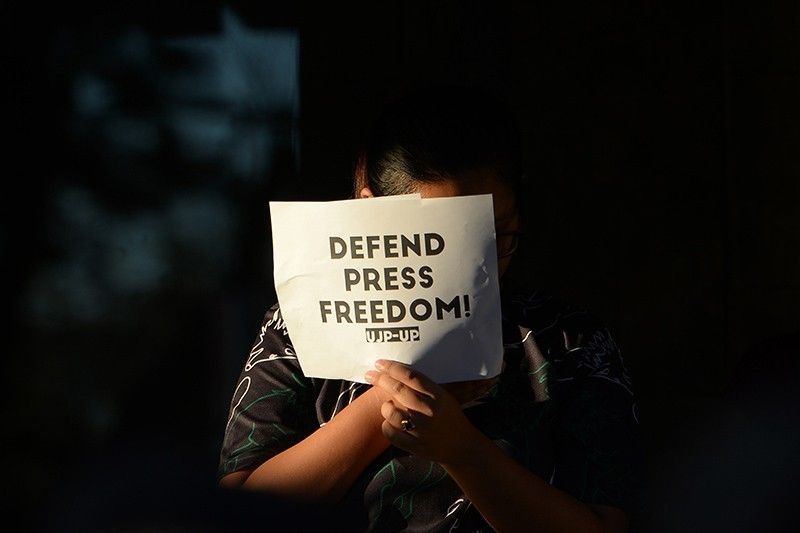Filipino journalists struggle to pierce ‘iron wall’ of misunderstanding towards media

MANILA, Philippines — Threats and propaganda against journalism have soured public perception of it, journalists said at the 2021 Jaime V. Ongpin Journalism Seminar, that there is a need to pierce an "iron wall" of misunderstanding to reconnect with audiences.
According to the Digital News Report 2021, overall trust in media in the Philippines is at 32%. That is up from 27% last year but lower than the 44% overall trust in news globally.
"There’s now a kind of an iron wall that we need to penetrate. When social media users, for example, see posts from Rappler or ABS-CBN, they would automatically dismiss it as not useful or misleading or false or biased," ABS-CBN’s Mike Navallo said.
Rappler’s Pia Ranada shared the same view, saying that this skewed perception against the media was highlighted under the administration of President Rodrigo Duterte.
"We see people who are so easily swayed by arguments of the government or Duterte’s allies that when media writes negative news, we are working towards the destruction of the government, we are not patriotic," Ranada said.
ABS-CBN’s Christian Esguerra identified Duterte as the biggest threat to a free press, enabling a culture of self-censorship among journalists and newsrooms.
"That even if a story has been well-vetted, even if sources have been properly verified and their information has been verified, there’s always this tendency these days, an aftereffect of this Duterte threat, on a good number of journalists today in the Philippines to actually censor themselves," Esguerra said.
Aside from the current sociopolitical landscape that Filipino journalists currently struggle with, Philstar.com and Interaksyon editor-in-chief Camille Diola pointed out that technology, too, is a big challenge in rekindling the connection with audiences.
“Our news, no matter how factual it is, no matter how well we produce it, how accurate it is, how critical, but if it doesn’t really reach to those segments of audiences, that is also one of my fears,” Diola said.
Philstar.com’s Franco Luna and James Relativo, speaking on a separate panel, also raised concerns about the restrictive access to information and how that should be relayed to audiences.
"I think it’s our job to let the public know that there is a kind of barrier being set by government and various institutions for the public to have reliable information," Relativo said.
Luna added that if information is blocked at the top, journalists must go down to the communities to source their stories.
"When the information at the top is this controlled and oftentimes this whitewashed, I find that the best practice, and really the only correct way to respond, is to go straight to the bottom, to people who are directly affected by the issues instead of the people controlling the issues," he said.
So how can media reconnect with its seemingly estranged audience? For ABS-CBN’s Edson Guido, numbers must start talking.
"I think now with trust in the media at an all-time low, one of the best defenses is we need to provide data alongside news stories to help improve the quality and accuracy of our work," Guido said.
For Rappler’s Lian Buan, journalists must be more open to scrutiny in order to regain the public’s trust.
"I think we should be more open to being scrutinized by our public and that’s the only way we could have at least a fighting chance in getting back the trust in media," Buan said.
The eight journalists were part of this year’s prestigious Jaime V. Ongpin Journalism Seminar hosted by the Center for Media Freedom and Responsibility, which was conducted online for the second year in a row due to the pandemic.
The forum was named after a press freedom advocate during the dictatorship of Ferdinand Marcos.
Each panelist received P20,000 each and a certificate of recognition.
The CMFR usually names a Marshall McLuhan fellow and hands out an award of distinction, but chose not to do so this year.
Last year’s Marshall McLuhan fellow, Esguerra, was unable to go on a study tour abroad due to pandemic restrictions. Diola was given the award of distinction last year.
- Latest




























